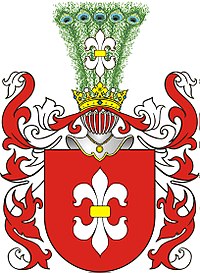Polish clans

Clans, or "rodziny" in Polish, are groups of people who are related to each other and often share the same last name. In Poland's history, clans were important because they helped people stick together and support each other through tough times.
Think of it like this: imagine you have a group of cousins who all have the same last name like Smith or Johnson. That would be your clan! And just like how you might feel closer and more loyal to your cousins than to strangers on the street, Polish clans felt the same way about their family members.
Each clan had their own "herb," which was a symbol that represented their family. It might have been an animal, like a lion or a bear, or a plant, like an oak tree or a rose. People would often display their herb on their clothes or on their coat of arms.
Clans also sometimes had their own land or property, and they would work together to take care of it. They might have also had specific customs or traditions that they followed.
Even though clans are not as important in modern-day Poland, many people are still proud of their family heritage and feel a strong connection to their clan.
Think of it like this: imagine you have a group of cousins who all have the same last name like Smith or Johnson. That would be your clan! And just like how you might feel closer and more loyal to your cousins than to strangers on the street, Polish clans felt the same way about their family members.
Each clan had their own "herb," which was a symbol that represented their family. It might have been an animal, like a lion or a bear, or a plant, like an oak tree or a rose. People would often display their herb on their clothes or on their coat of arms.
Clans also sometimes had their own land or property, and they would work together to take care of it. They might have also had specific customs or traditions that they followed.
Even though clans are not as important in modern-day Poland, many people are still proud of their family heritage and feel a strong connection to their clan.
Related topics others have asked about:
Armorial of Poland,
Armorial of Polish nobility,
Coat of arms of Białystok,
Coat of arms of Central Lithuania,
Coat of arms of Congress Poland,
Coat of arms of Gdańsk,
Coat of arms of Gorzów Wielkopolski,
Coat of arms of Kashubia,
Coat of arms of Kociewie,
Coat of arms of Kraków,
Coat of arms of Lublin,
Coat of arms of Poland
